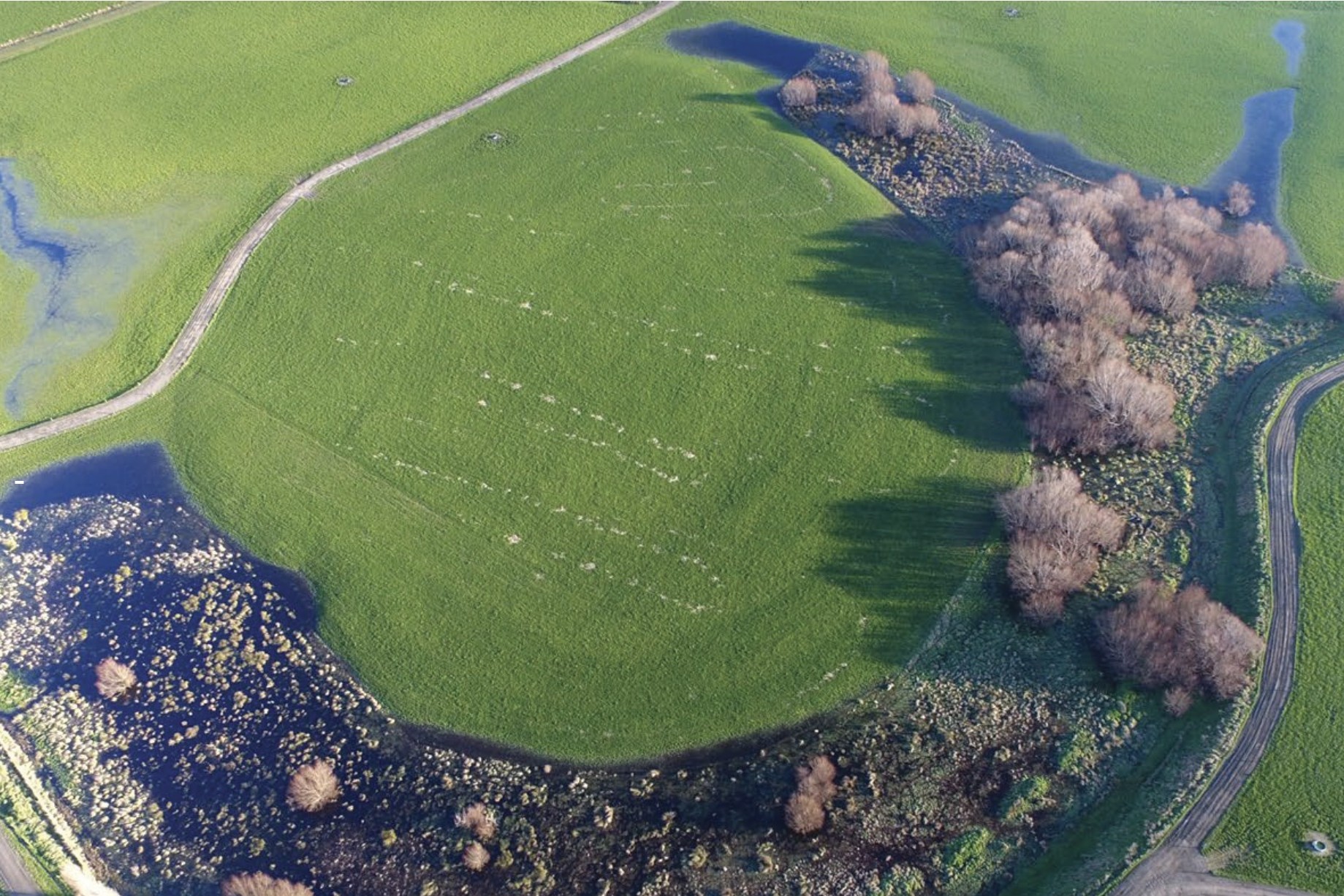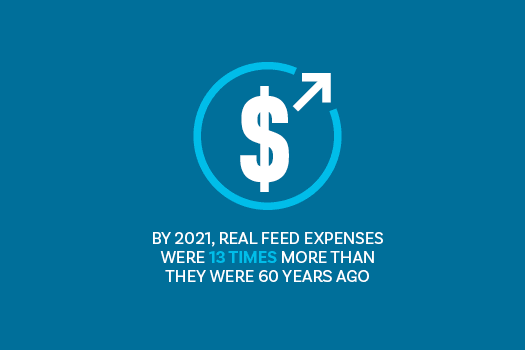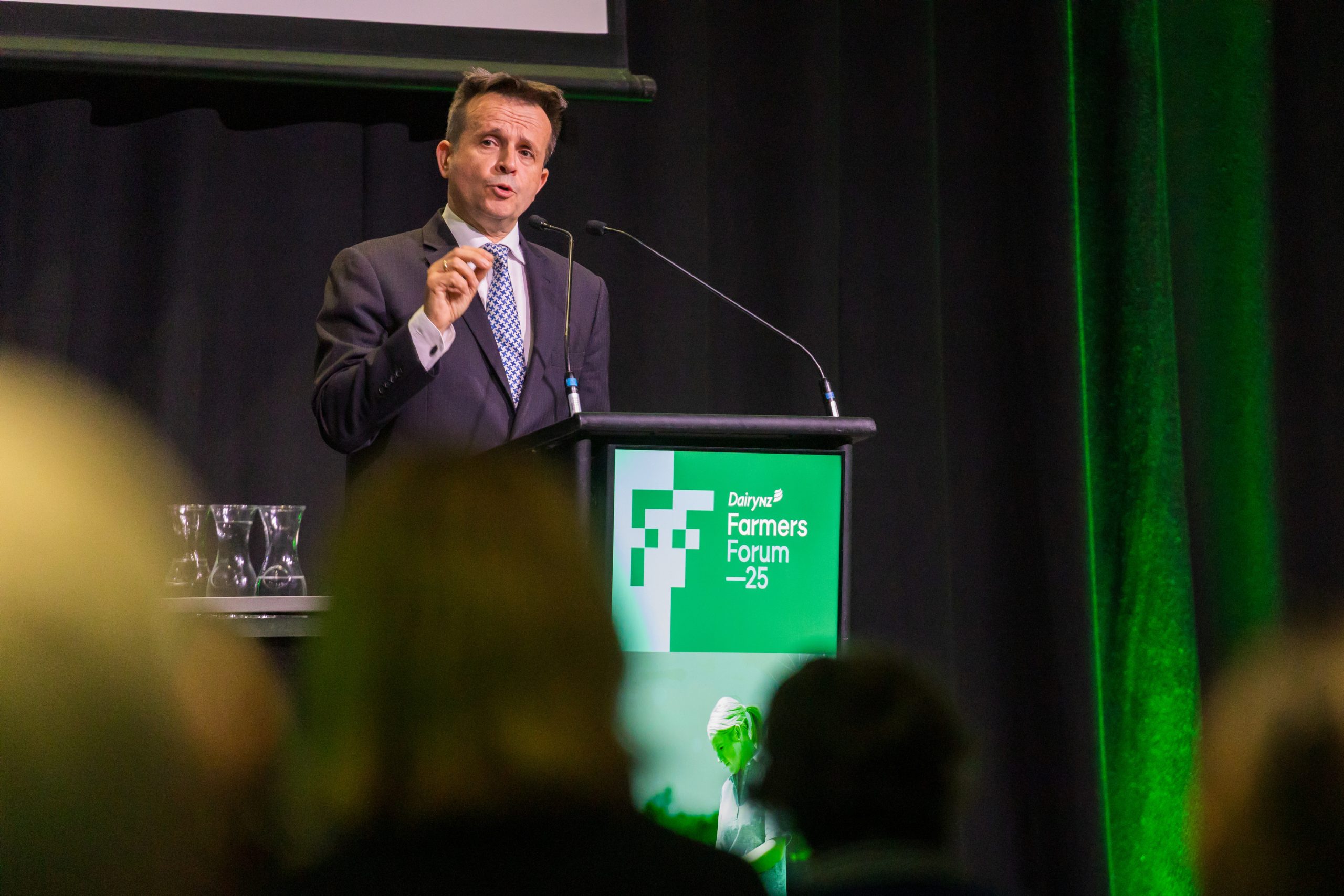Fitting work to people’s lives has proved a winner for a Tararua dairy farmer. Jackie Harrigan reports.
Woodville dairy farmer Ben Allomes was looking for an opportunity to radically reorganise the rosters on his 800-cow farm when the chance came up with a mid-season change in personnel last October.
Ben had ruminated on finding a way to make the dairy farming system and equity partnership business fit around the people available and willing to work in it – rather than taking an inflexible system and trying to find the right people to fit it.
When he stepped in to run the farm with just a calf rearer and one milker for more than 700 cows he contracted someone to come in and clean the yard for two hours each day.
“In some ways it was more efficient – she did it when it suited her and us, and it was the only job on the farm that she wanted to and was able to do.”
‘We wanted to standardise the role, not the person — the jobs we want to get done don’t really change but the person changes, so we need levels of responsibility of being able to fulfil the roles.’
The Allomes had used milk harvesters for six years very successfully – “they only wanted to be milking and they didn’t want the stress of other roles”.
At the time Nicky Allome’s cousin in Southland on a once-a-day farm had milkers who dropped their kids at school then turned up and milked at 9.30am.
“It expanded my horizons to start thinking of how we could structure the new model.”
What Ben came up with was a system that accommodated the needs and personal drivers of lots of different workers – some fulltime, some part-time, some contract, others casual and some permanent part-time. In fact, they don’t call them workers – all are team members, and all take on shifts – or packages of work – that have a defined role and an expected outcome and can be shared around the team, as long as they are trained to execute it.
Team members (except the manager) are all paid an hourly rate and track hours of work via a phone app so payroll maestro Nicky finds it easy to do the wages. Pay scales vary, but the Allomes always pay above the minimum wage and new skills learned are reflected in the hourly rate. Even Ben is paid an hourly wage (and not at management rates) when working on the farm.
The wages bill has not increased under the modular system but the work/life balance and happiness of the staff has, with reduced risk to the business, Ben says.
Transitional thinking
When Ben wanted to transition to a skills and tasks-based team environment, he and Nicky sat down and worked out that the 800-cow farm took 35 work hours/day to run in the spring/mating period and 16 work hours/day in summer. Analysing time and motion studies around the farm, they decided how the roles would be ‘sliced and diced’.
They also realised there were different seasonal packages of work in different parts of the year, splitting the year into calving/mating, summer and winter – with varying tasks and workloads.
The aim is to run a 5:2 roster based on a 45-50-hour week in spring and a 40-hour week in summer, but with certain rules like no cups going on before 5.30am.
By the time manager Nick Bailey joined the team in May 2017, Ben was well down the track of packaging up roles and thinking of how to staff them.
“We wanted to standardise the role, not the person – the jobs we want to get done don’t really change but the person changes, so we need levels of responsibility of being able to fulfil the roles.”
Nick was a 2016 Dairy Industry Awards Dairy Trainee winner for the Hawke’s Bay Wairarapa region and came from a more-traditional operation, where he was one of five full time equivalents on a 1000 cow unit with a 8:2 roster.
Once he got to grips with Ben’s new system of flexi-work he could see great advantages in it and he says he really likes the way it works for everyone.
Now they have a team of 12 – all on an hourly rate and just three who work a full-time workload. The rest are all part-timers because that is what suits their lifestyle and motivations, and they are welcome to pick up more work if it is available and they are willing to train to do it.
Nick makes the monthly roster on an Excel spreadsheet and shares it within the Messenger group for all the farm team. The team also uses the Tribal App for health and safety, and two-way radios.
The three full-time team members are paid by the hour with a goal of working a roster resembling 11:3 in spring and then 5:2 in summer, although Nick says it usually works out more like a 5.5:1.5 roster through spring with staff happy to have one weekend day and also one mid-week afternoon off. The roster is frontloaded in the morning with four staff on so that most of the work gets done then and only two are needed in the afternoon.
“We have found there are more people willing to work the morning shift and so we just have a skeleton shift in the afternoon,” Ben says.
“You don’t get as many sleep-ins but you have more time off – and there is only one person getting up at five each morning.”
And if something goes wrong in the morning you have time up your sleeve in the afternoon to fix it, it’s less pressured, he adds.
Nick fills the roster with the ‘need to do’ jobs matched to the people available on a regular basis, then pairs up ‘nice to do’ jobs to the others available. For example team member Ben, a uni student who can work weekends and prefers to drive over for a long day’s work does ‘must do’ jobs in the morning then fills in the day with ‘nice to do’ jobs until the afternoon milking.
Alongside Nick as manager, the full timers are team leaders for the farm team and the milking team. Team leaders are responsible for training their replacement when they are not rostered on and being comfortable that the replacement is capable of covering for them.
The milking team are in charge of everything that goes on in the dairy shed – milking, cleaning the shed, the MINDA system, effluent, refrigeration and dosatron and everything within the hectare around the shed.
The farm team gets the cows in, organises paddocks and breaks, oversees feeding, fencing and farm maintenance, although the latter two might be packaged for someone else in the future.
Effluent application is a separate package, carried out by a trained person and attracts an additional payment. Anyone, once trained, can pick up and complete the role.
Cropping is carried out by the cropping arm of the Allomes’ farming enterprise and calf-rearing is a separate job, carried out by two women who come in once a day to do just that.
Mating was the job of a sole casual worker last year, this season the 19-year-old calf rearer has been trained and taken it on and is loving the experience.
“That’s the beauty of the system, it’s not rigid or fixed – whoever is capable and willing to put their hand up for a job and can fit it in, is welcome to apply.”
Ben has a package of 50 hours of weed spraying through late spring each year, spot spraying after a winter boom spray of the whole property. He will offer it to existing team members, in case someone wants to do it, earn extra income and can fit it in and finish by the stated end date.
“If no one here wants it, I will go out to the local community and see if anyone there wants it – it’s a good block of work, all the gear and training is available – there is bound to be a local who will pick it up.”
Because Ben and Nicky have done lots of work on standardising routines to make sure the jobs were all done to the same standard, and as a consequence have dropped off nine hours of work each day. They estimated the operation takes 8000 hours over a season, equating to 10 hours per cow for 800 cows. They are looking forward to moving away from using Full Time Equivalents (FTE) as a KPI, but instead measuring success and calculating efficiency in hours per cow and time or cents per kg MS.
When they better understand and improve the metrics they will continue to invest in time and labour-saving technologies and share the savings across the team as higher wages for them, Ben says.
Understanding motivations
The biggest thing to sort out (after the makeup of the packages of tasks) was the motivations and interests of all the team.
“You have to understand your people – what are their motivations?” Ben says.
“Younger people tend to be more driven by pay rises and wanting time off, but some are more motivated by the opportunity to keep learning, to keep growing their skills.
“Some people want to do just the one job and be an expert at it, and we get really good value and efficiency from them – they love being the expert in their area and they are the one who knows how to run that system.
“Others like to keep learning and expanding their skill set – and that is the job of management – to identify that motivation and help them become more competent and skilled – one skill-set at a time.”
Ben prefers this approach over the old system of employing a new farm assistant and throwing a whole lot of jobs at them, which they could perform to a low level of competence, and risking overwhelming them.
“This way you take someone on to do one job and they are trained and competent then you introduce another job, they grow in confidence and want to do more. Instead of their skills lifting horizontally across the job, they really master one thing before moving on broadening their experience in other areas.”
Farm team leader Kara, started as a calf-rearer with two months’ experience and now one year later leads the farm team.
“Kara is a star of this system, she started as a calf-rearer and mastered that, wanted to learn more and more so has added to her skills. That’s her driver and we encourage her to upskill and take on more roles as she becomes confident. Now she is teaching others different jobs.”
Communication vital
As with any team, the one vital thing to ensure smooth system running is communication, and luckily, with a young staff, they are all happy to use and au fait with technology to make sure the communication happens. Handover time is important to make sure people get the correct instructions.
The Facebook Messenger group is used extensively to message, send pictures and reminders and a white board in the farm dairy compliments the system. Rosters are photographed and shared among the group.
Another Facebook group for managers is set up across the Allomes’ different farms to discuss higher-level issues.
The team also have access to Google Drive where shared documents are stored with details on farm walks, MINDA Live reports and policy manuals.
Advantages:
Flexibility: The flexibility of the system is the overriding advantage for manager Nick Bailey.
“The flexibility to run the farm and keep all the people interested and involved is great – and it also gives me a chance to get the paperwork, admin and other tasks like the farm walk done.”
Having all of the skills available with different people allows another form of flexibility too.
“I know the skills are available to be able to roster off people and be happy others can handle the work – or even knock staff off early if they need it.”
“It’s great that someone like me, a first-time manager on a new job can take weekends off and know that it is all working without me.
“The beauty is that we have a big pool of people that know our farm and our systems, so if something goes wrong we have people we can call on to cover, it reduces the risk to the operation,” Ben says.
Ability to offer work of all types to the local community: Ben is really keen and excited about being able to offer work to people in the local community that might suit their availability and skill-set because of the flexibility of the modular work system.
“We want to use a whole lot of people with a whole lot of skills – if they can’t start at five or finish at six that’s OK, we can still fit them into our business.
“I can take a punt on someone – they can come in and fill a gap and grow into something more – having time to train and learn in a safe space.
“In any community there are people who are looking for opportunities.”
Team dynamic: Most young people these days enjoy working in a group setting and a big team gives them a social aspect to the work, Ben says. There is also more flexibility to have time off, although Ben laughs that having four of their team members from the same family, who are all into horse sports, could be a risk in itself.
Analytics: Knowing exactly the amount of time involved in each job makes it easy to analyse and justify capital expense on infrastructure, Ben says. The combined jobs of hosing the yard (3 hours) plus sorting the sump pump, water costs and pumping and spreading the effluent was easily cut down and rationalized by investing in a yard scraper and now the whole job is 30 minutes and no longer costs $100 each day.
Risks:
Making up hours: One risk of the modular-work system is that the team might ‘game’ the hours , but it’s important to trust your team and because they know exactly how many hours it takes to do the jobs the risk is minimised, Ben says.
“That risk is easily dealt with because Nicky does the payroll with the help of an app and we know how many hours it takes to run the farm.”
Not taking responsibility: People not taking responsibility for getting the job done could be a risk, Ben says.
“You need clear systems and procedures and expectations around the packages of work – what is included and what is not included.
“People love to be in charge of something – if you make them the expert in one little area then you can move them on to another area, with training and support.”
Mistakes: “Mistakes will happen – and the wrong decision made now and then, we realise that,” Ben says.
“It’s not the decision that matters, it’s the process that is important. You need the right process to access the key information that leads to the correct decision.”
Understanding of the infrastructure and the key systems is really important along with developing a culture of the team members understanding and being able to cover each other’s roles.





